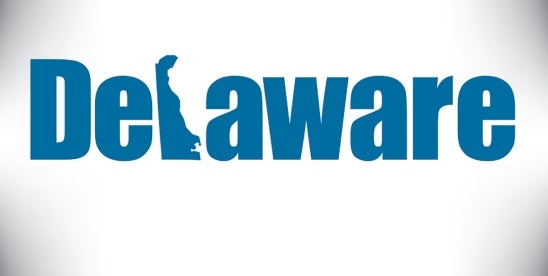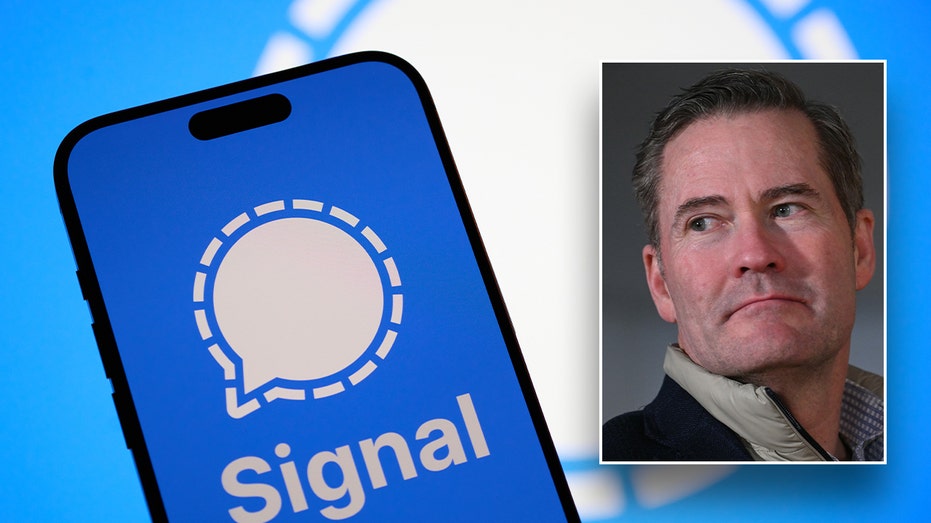
On March 25, 2025, the governor of Delaware signed into law Senate Bill 21 , over much opposition from the plaintiffs’ bar and some academics. The bill, which amends Sections 144 and Section 220 of the Delaware General Corporation Law, 8 Del. C.
(the “DGCL”), seeks to provide clarity for transactional planners in conflicted and controller transactions, and seeks to limit the reach of Section 220 books and records demands. These amendments significantly alter the controller transaction and books and records landscape. Background Senate Bill 21 comes in the backdrop of heightened anxiety over whether Delaware will retain its dominance in the corporate law franchise.

Businesses have cited a seemingly increased litigious environment in Delaware, and when coupled with a handful of high-profile companies redomesticating or considering redomesticating to other jurisdictions (see our blog article about the Tripadvisor redomestication here ), other states such as Texas and Nevada making a strong push to accommodate for new incorporations and redomestications, and a series of opinions out of the Delaware Court of Chancery that were unpopular in certain circles, concern was growing of Delaware falling from its position as the leading jurisdiction for corporate law. This is not the first time the Delaware legislature has acted to re-instill confidence in Delaware corporate law to the market. Senate Bill 21 also comes less than a year after Senate Bill 313 was signed into law.
Senate Bill 313, coined the “market practice” amendments, sought to address the decisions in West Palm Beach Firefighters’ Pension Fund v. Moelis & Company , 311 A.3d 809 (Del.
Ch. 2024), Sjunde AP-Fonden v. Activision Blizzard , 124 A.
3d 1025 (Del. Ch. 2024), and Crispo v.
Musk , 304 A.3d 567 (Del. Ch.
2023), which many found surprising. And perhaps most famously, Section 102(b)(7) , the director exculpation clause (now the director and officer exculpation clause following an amendment in 2022), was enacted in the wake of the Delaware Supreme Court’s decision in Smith v. Van Gorkom , 488 A.
2d 858 (Del. 1985), which caused shockwaves throughout the corporate law community as well as the director and officer insurance market. Senate Bill 21 Amendments Section 144 .
Section 144 of the DGCL was revamped entirely from being a provision speaking on the voidability of conflicted transactions, into a statutory safe harbor for conflicted and controller transactions. The essence of the new Section 144 is defining what a controlling stockholder is, and providing different safe-harbor frameworks for conflicted transactions, controlling stockholder transactions, and controlling stockholder “go private” transactions for public companies. Controllers are now statutorily designated as those persons (together with affiliates and associates) that (1) has majority control in voting power, (2) has the right to nominate and elect a majority of the board, or (3) possess the functional equivalent of majority control by having both control of at least one-third in voting power of the outstanding stock entitled to vote generally in the election of directors and the power to exercise managerial authority.
The last category will likely be the subject of much litigation in the future, but the defined boundaries will limit a plaintiff’s ability to cast a person as a controller. Under the new Section 144, controllers (and directors or officers of a controlled company) can shield themselves from a fiduciary claim in a conflicted transaction if (1) a committee of 2 or more disinterested directors that has been empowered to negotiate and reject the transaction, on a fully-informed basis, approve or recommend to approve (by majority approval) the transaction, or (2) it is approved by a fully-informed, uncoerced, affirmative vote of a majority of the votes cast by the disinterested stockholder. And in a “go private” transaction, both (1) and (2) above need to be accomplished.
Such actions will grant the transaction “business judgment rule” deference. This is a significant change from recent Delaware Supreme Court precedent under Kahn v. M&F Worldwide Corp .
, 88 A.3d 635 (Del. 2014) (“ MFW ”), and its progeny holding that a controller transaction providing a non-ratable benefit to the controller will be reviewed under the discerning “entire fairness” standard unless the transaction is conditioned “ ab initio ” ( i.
e. , at the outset) on the approval of a majority of fully-informed disinterested director and fully-informed, disinterested and uncoerced stockholders. The legislature has spoken that the spirit and structure of MFW will only apply to “go private” transactions, whereas in a non-“go private” transaction the controller needs to meet just one of the MFW prongs, and a disinterested director cleansing does not have to be “ ab initio .
” Note also that Section 144 provides that controllers are not liable for monetary damages for breaches of the duty of care. New Section 144 also creates a new presumption that directors of public corporations that are deemed independent to the company under exchange rules are disinterested directors under Delaware law (and, if the director meets such independence criteria with respect to a controller, the director is presumed disinterested from such controller). To overcome this presumption, there must be “substantial and particularized facts” of a material interest or a material relationship with a person with a material interest in the act or transaction.
Note that NYSE and NASDAQ independence is a somewhat different inquiry from director disinterestedness under Delaware corporate law. To qualify as independent for exchange purposes, directors cannot hold management positions at the company, its parents or subsidiaries, and former executives are not considered independent for three years after their departures. See Nasdaq Rule 5605 and NYSE Listed Company Manual 303A.
02 . A director also does not qualify as independent if the director or their families received more than $120,000 in compensation from the company in any 12-month period in the prior three years. In contrast, disinterestedness of a director under Delaware law has been historically a much more fact-and-circumstances inquiry, where judges have looked to things like co-owning an airplane, personal friendships and other “soft” factors.
Section 220 . Under Section 220, a stockholder is entitled to examine a corporation’s “books and records” in furtherance of a “proper purpose” reasonably related to the person’s status as a stockholder. The use of this potent tool has proliferated through the years, with stockholders of Delaware corporations becoming increasingly savvy, sophisticated and demanding with their books and records demands to investigate potential corporate wrongdoings before filing suit.
Delaware courts have encouraged the use of Section 220, in many cases urging stockholders to use the “tools at hand” ahead of filing suit, presumably with the hope of curtailing bad claims clogging up the docket. The amended Section 220 limits the universe of what a stockholder may demand under Section 220. Prior to the amendments, a stockholder could pursue materials, even if not “formal board materials,” if they make particularized allegations of the existence of such materials and a showing that an investigation of the suspected wrongdoing was “necessary and essential.
” The statute, as amended, limits the ability for stockholders to pursue materials such as personal director or officer emails that may have relevant information, which could be allowed under the prior regime. Under the amended Section 220, if what the stockholder seeks is not part of the nine types of “books and records” spelled out in the statute, the stockholder cannot have access to it in a Section 220 books and records demand. Questions Going Forward The amendments to Sections 144 and 220 collide with or directly overturn several Delaware caselaw precedents.
The landscape has changed, and we will see how Delaware corporations and its constituents respond. From a transactional planning perspective, the safe-harbors of Section 144 provide much-needed guidance, but with limited caselaw overlay interpreting the boundaries of the safe-harbors, the structuring is not without risk. Turning back to the backdrop of Senate Bill 21: does this fix the “ DExit ” concern? Perhaps.
But these amendments undoubtedly swing the pendulum to the corporation, controller and management. Whether it is swinging back toward the center is up for debate, but what is not debatable is that preserving the Delaware corporate law franchise depends upon balance. Through the legislative process there were some institutional investors that opposed Senate Bill 21.
We will see what kinds of moves, if any, investors of Delaware corporations will make going forward. Finally, is Section 144 an “opt out” provision? The DGCL is a regime of mandatory statutes, enabling statutes, and default statutes one can opt in or out of. Returning to Section 102(b)(7), this exculpation provision is a well-known example of an opt-in, where a corporation has the option to add that exculpation clause to the company’s certificate of incorporation.
Section 203 , on the other hand, is an “opt out” statute where a corporation can choose not to have certain restrictions on business combinations with interested stockholders. In the legislative process, several prominent corporate law professors sought to have Senate Bill 21 revised such that it would be a charter “opt-in,” meaning that the default is the status quo, and companies (with stockholder approval) can adopt the controller transaction safe-harbor and books and records limitations in the new Sections 144 and 220. This proposal was ultimately not accepted, but there has been some mention that the text of the new Section 144 suggests it is actually an “opt out” statute.
If that is the case, and investors do feel strongly about the Senate Bill 21 amendments, we may see stockholder proposals in the coming years for amendments to the corporate charter to opt out of the new Sections 144 and 220. We will watch the SEC Rule 14a-8 proposals in upcoming proxy cycles to see if this is the case..















